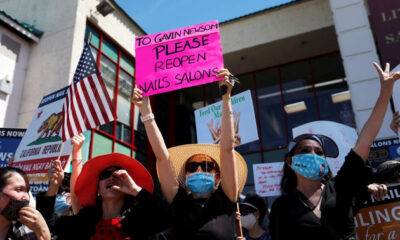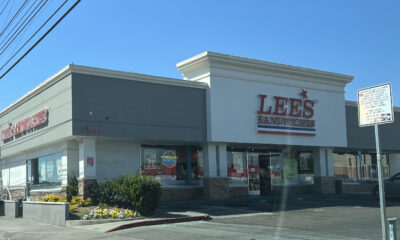AB5 AND ITS IMPACT ON VIETNAMESE MANICURISTS IN 2025
Năm 2019, California đã thông qua Dự luật Quốc hội 5 (AB5), một đạo luật mang tính đột phá nhằm phân loại lại các nhà thầu độc lập là nhân viên trong một số ngành nhất định. Luật này có ý nghĩa sâu rộng trong nhiều lĩnh vực khác nhau, nhưng có lẽ rõ ràng hơn trong ngành làm móng, nơi nhiều thợ làm móng Việt Nam hoạt động với tư cách là nhà thầu độc lập.
AB5 được thiết kế chủ yếu để giải quyết những lo ngại về việc phân loại sai người lao động và để đảm bảo rằng các nhà thầu độc lập nhận được các quyền lợi và sự bảo vệ cho nhân viên. Nó mã hóa “bài kiểm tra ABC”, xác định xem một công nhân có được phân loại đúng là nhà thầu độc lập hay không dựa trên:
1. A – Người lao động có thoát khỏi sự kiểm soát và chỉ đạo của cơ quan tuyển dụng trong việc thực hiện công việc hay không.
2. B – Công việc được thực hiện có nằm ngoài quy trình kinh doanh thông thường của đơn vị tuyển dụng hay không.
3. C – Liệu người lao động có thường xuyên tham gia vào một hoạt động thương mại, nghề nghiệp hoặc kinh doanh được thành lập độc lập hay không.
Với sự giúp đỡ của cựu Thượng nghị sĩ Janet Nguyễn, Dự luật Quốc hội 1561 đã tạm thời đình chỉ AB5 trong vài năm để giúp các doanh nghiệp thẩm mỹ viện dễ dàng chấp nhận luật mới nhưng kể từ ngày 1 tháng 1 năm 2025, thợ làm móng sẽ không còn được miễn trừ nữa. Chính trị gia Việt Nam hiện tại duy nhất có thể giúp cộng đồng đề xuất Dự luật mới là Nghị sĩ Trí Tạ, tuy nhiên ông vẫn chưa lên tiếng giúp đỡ các thợ nail sau một năm nhậm chức. Thợ làm móng người Việt chiếm gần 70% lực lượng lao động trong các tiệm nail nên khi luật AB5 có hiệu lực vào năm 2025, Dân biểu Trí Tạ sẽ mất đi phần lớn người Việt ủng hộ ông. Để ngăn luật này có hiệu lực, chúng ta cần anh ấy đứng ra và thực hiện vai trò của mình với tư cách là một chính trị gia được bầu chọn. Nếu không, công dân Mỹ gốc Việt sẽ không bỏ phiếu cho anh ấy và sẽ bỏ phiếu cho một người khác sẵn sàng giúp đỡ các thợ làm móng người Việt trong nhiệm kỳ tới.
Nếu không có luật ngăn chặn AB5, việc phân loại lại có thể đồng nghĩa với những thay đổi đáng kể trong cách các thợ làm móng Việt Nam hoạt động theo cơ chế hoa hồng và sự bảo vệ hợp pháp của họ. Một trong những nhược điểm chính của việc được phân loại là nhân viên theo AB5 là có thể mất đi sự hỗ trợ của chính phủ như phúc lợi, phiếu thực phẩm, trợ cấp mua sắm, nhà ở, hỗ trợ tài chính cho giáo dục hoặc Medi-Cal nếu thu nhập được báo cáo của thợ làm móng cao hơn thu nhập. ngưỡng được phép nhận trợ cấp khi họ sẽ báo cáo mức lương theo giờ. Hầu hết các thợ làm móng kiếm được mức lương W2 sẽ chỉ báo cáo mức lương tối thiểu và phần thu nhập còn lại của họ sẽ được bỏ dưới dạng tiền mặt. Tất nhiên, Bộ Lao động đã được cảnh báo về điều này và sẽ kiểm tra bảng lương của người sử dụng lao động đối với những khoản lương tiềm ẩn chưa được trả, thời gian làm thêm giờ không được trả, thời gian nghỉ ốm không được trả lương, v.v.
Vì vậy, với tư cách là chủ tiệm, những thay đổi đáng kể này có thể dẫn đến tăng chi phí do thuế trả lương, phúc lợi, nguồn nhân lực và khả năng tái cơ cấu mô hình kinh doanh của họ. Bây giờ họ sẽ được kiểm toán và chịu trách nhiệm trước Bộ Lao động. Các tiệm nhỏ hơn có thể gặp khó khăn trong việc giải quyết những khoản chi phí bổ sung này, có khả năng dẫn đến những thay đổi trong cách họ hoạt động hoặc thậm chí đóng cửa.
Động lực trong các tiệm nail cũng có thể thay đổi. Với các thợ làm móng hiện được coi là nhân viên, họ sẽ phải tuân theo lịch trình có cấu trúc chặt chẽ hơn, phải tuân thủ các điều kiện làm việc hạn chế, tuân thủ các quy tắc và hướng dẫn của người sử dụng lao động, và đặc biệt là những thợ làm móng coi trọng tính linh hoạt của việc trở thành nhà thầu độc lập, có thể thấy những thay đổi này bị hạn chế.
Khi chúng ta bước đến năm 2025, tác động đầy đủ của AB5 đối với các thợ làm móng tay Việt Nam sẽ trở nên rõ ràng hơn. Những thách thức như điều chỉnh theo cơ cấu việc làm mới và khả năng phản đối từ các chủ tiệm là rất lớn.
Việc triển khai AB5 đặt ra những thách thức và sự không chắc chắn cho các thợ làm móng người Việt ở California và hơn thế nữa. Cuối cùng, chúng ta sẽ chứng kiến nhiều tiệm đóng cửa và một lượng lớn thợ làm móng rời khỏi California. Bối cảnh phát triển của ngành làm móng sẽ đòi hỏi sự thích ứng từ cả nhân viên và chủ tiệm để thích ứng với những thay đổi này.
—————————————–
In 2019, California passed Assembly Bill 5 (AB5), a groundbreaking legislation aimed at reclassifying independent contractors as employees in certain industries. This law has had far-reaching implications across various sectors, but perhaps more visibly in the nail salon industry, where many Vietnamese manicurists operate as independent contractors.
AB5 was primarily designed to address concerns about worker misclassification and to ensure that independent contractors receive employee benefits and protections. It codifies the “ABC test,” which determines if a worker is properly classified as an independent contractor based on:
1. A – Whether the worker is free from the control and direction of the hiring entity in performing the work.
2. B – Whether the work performed is outside the usual course of the hiring entity’s business.
3. C – Whether the worker is customarily engaged in an independently established trade, occupation, or business.
With the help of former Senator Janet Nguyen, Assembly Bill 1561 temporarily suspended AB5 for a few years to help salon businesses ease into the new law but as of January 1, 2025, manicurists will no longer be exempted. The only current Vietnamese politician that can help the community propose a new Bill is Assemblyman Tri Ta, yet he has not raised his voice to help nail technicians after being in office for a year. Vietnamese Manicurists make up of almost 70% of the workforce in nail salons so when the AB5 law goes into effect in 2025, Assemblyman Tri Ta will lose most of his Vietnamese supporters. In order to prevent this law from going into effect, we need him to step up and do his part as an elected politician. Otherwise, Vietnamese American citizens will not be voting for him and will cast their vote for someone else who is more willing to help the Vietnamese Manicurists in the next term.
Without a law to prevent AB5, reclassification could mean significant changes in how Vietnamese manicurists who operate on a commission basis work and their legal protection. One of the key disadvantages of being classified as an employee under AB5 is the possible loss of government assistance such as welfare, food stamps, shopping allowances, housing, financial aid for education, or Medi-Cal if the manicurist’s reported income is higher than the allowed threshold for benefits now that they will be reporting hourly wages. Most manicurists who do earn W2 wages will only report the minimum wage and the remainder of their earnings will be pocketed as cash. Of course, the Department of Labor has been alerted to this and will be auditing employers payroll for potential unpaid wages, unpaid overtime, unpaid sick leave, etc.
So as a salon owner, these significant changes may lead to increased costs due to payroll taxes, benefits, human resources, and potential restructuring of their business models. They will now be audited and be held accountable by the Department of Labor. Smaller salons might struggle to absorb these additional expenses, potentially leading to changes in how they operate or even closures.
Dynamics within nail salons may also shift. With manicurists now considered employees, they will have to follow more structured schedules, be required to adhere to restrictive working conditions, abide by employer rules and guidelines, and especially manicurists who value the flexibility of being independent contractors, may find these changes restrictive.
As we approach 2025, the full impact of AB5 on Vietnamese manicurists will become clearer. Challenges such as adjusting to new employment structures and potential resistance from salon owners loom large.
The implementation of AB5 poses challenges and uncertainties for Vietnamese manicurists in California and beyond. Eventually, we will see many salon closures and a major exodus of Manicurists moving out of California. The evolving landscape of the nail salon industry will require adaptation from both workers and salon owners alike to navigate these changes.

 Politics3 years ago
Politics3 years ago
 Business2 years ago
Business2 years ago
 Business3 years ago
Business3 years ago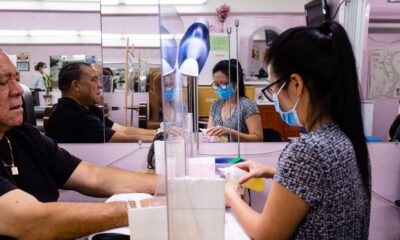
 Business3 years ago
Business3 years ago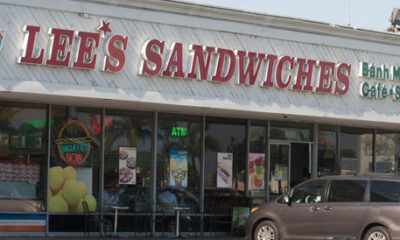
 Business3 years ago
Business3 years ago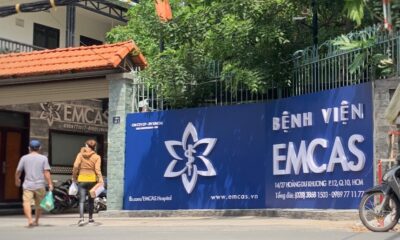
 Business4 years ago
Business4 years ago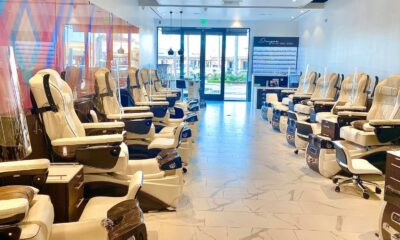
 Business3 years ago
Business3 years ago
 Health3 years ago
Health3 years ago



